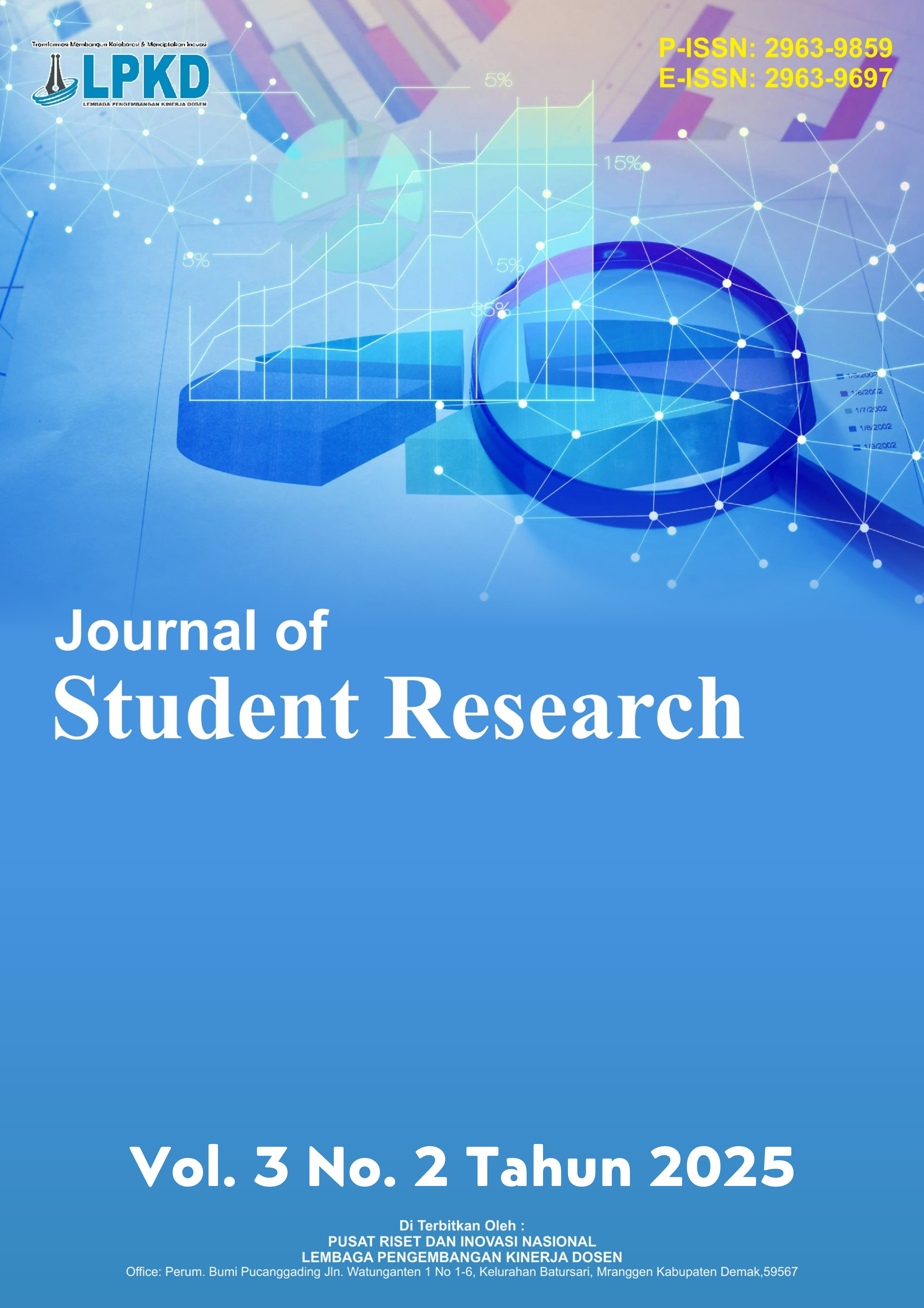Etika dan Hukum Pernikahan dalam Islam: Panduan Menuju Pernikahan yang Harmonis
DOI:
https://doi.org/10.55606/jsr.v3i1.3598Keywords:
Marriage, Engagement, LawAbstract
Marriage in Islam is not only seen as a socially legitimate bond, but also as a part of deep worship. The process towards marriage begins with engagement, which contains various ethical and legal values that must be considered by both parties. This article aims to examine the ethics and laws related to engagement in Islam, with a focus on the procedures for engagement, the rights and obligations of prospective husband and wife, and legal views on physical and social attachment during the engagement period. This study concludes that although engagement is not legally binding like marriage, there are moral and social rules that must be respected, including maintaining the honor and boundaries of interaction between prospective husband and wife. This article also highlights the importance of understanding the rights and obligations of each party during the engagement period, which can lead to a sacred and harmonious marriage.References
[1] M. Suyuti, “Pandangan Tokoh Masyarakat Pada Perilaku Pasangan Calon Pengantin Selama Masa Khitbah di Kelurahan Gebang Kecamatan Patrang Kabupaten Jember,” Rechtenstudent, vol. 2, no. 2, pp. 158–172, 2021, doi: 10.35719/rch.v2i2.60.
[2] Muhammad Fuad Mubarok and Agus Hermanto, “Hak dan Kewajiban Suami Istri dalam Konsep Kesetaraan Gender Perspektif Maqasid Syariah,” Indones. J. Islam. Law Civ. Law, vol. 4, no. 1, pp. 93–108, 2023, doi: 10.51675/jaksya.v4i1.298.
[3] H. Matnuh, A. Pendahuluan, B. P. Kawin, and D. Tangan, “Perkawinan dibawah tangan dan akibat hukumnya menurut hukum perkawinan nasional,” vol. 6, pp. 899–908, 2016.
[4] F. Qorib, I. Trisnawati, M. L. Hakim, and U. M. Lampung, “Dampak Pelanggaran Masa Iddah dan Akibat Hukumnya Perspektif Hukum Islam dan Undang-Undang Nomor 16 Tahun 2019,” vol. 1, no. 1, 2024.
[5] N. D. Lestari, “Kompilasi Hukum Islam (Khi) Dan Pendapat Madzhab Syafi’I Tentang Batasan Masa Tunggu Suami/Isteri Mafqud,” J. Islam Nusant., vol. 2, no. 1, p. 129, 2018, doi: 10.33852/jurnalin.v2i1.76.
[6] I. Bachri, “Kewajiban Pengembalian Mahar Berganda Karena Pembatalan Khitbah dalam Pandangan Islam,” J. STAI Darul Arafah, vol. 3, no. 1, pp. 11–27, 2020.
[7] F. K. D. & Muniri, “Adab dan Urgensi Khitbah pada Era Kontenporer Kajian Tafsir Fiqh Dalam Suart Al-Baqarah [2]: 235,” Al-Fikrah, vol. 3, no. 1, pp. 55–79, 2020.
[8] A. Mustakim and N. Kholipah, “Konsep Khitbah Dalam Islam,” Jas Merah, vol. 1, no. 2, pp. 27–47, 2022, [Online]. Available: https://ejournal.staidapondokkrempyang.ac.id/index.php/jmjh/article/view/141/138
[9] Siti Rahmi, Komunikasi Interpersonal dan Hubungannya Dalam Konseling. 2021.
[10] S. Mughni, A. Fiqoh, F. A. Yansa, and I. F. Roikhah, “Meminang Pinangan Orang Lain Menurut Kompilasi Hukum Islam dan Ulama Fiqih,” Komparat. J. Perbandingan Huk. dan Pemikir. Islam, vol. 3, no. 1, pp. 30–44, 2023, doi: 10.15642/komparatif.v3i1.1705.
[11] M. Mukhlas and M. Pd, “TINJAUAN FIQIH MUNAKAHAT TERHADAP TRADISI LAMARAN DI KECAMATAN KARANGJATI KABUPATEN NGAWI,” 2023.
Downloads
Published
How to Cite
Issue
Section
License
Copyright (c) 2024 Journal of Student Research

This work is licensed under a Creative Commons Attribution-ShareAlike 4.0 International License.









